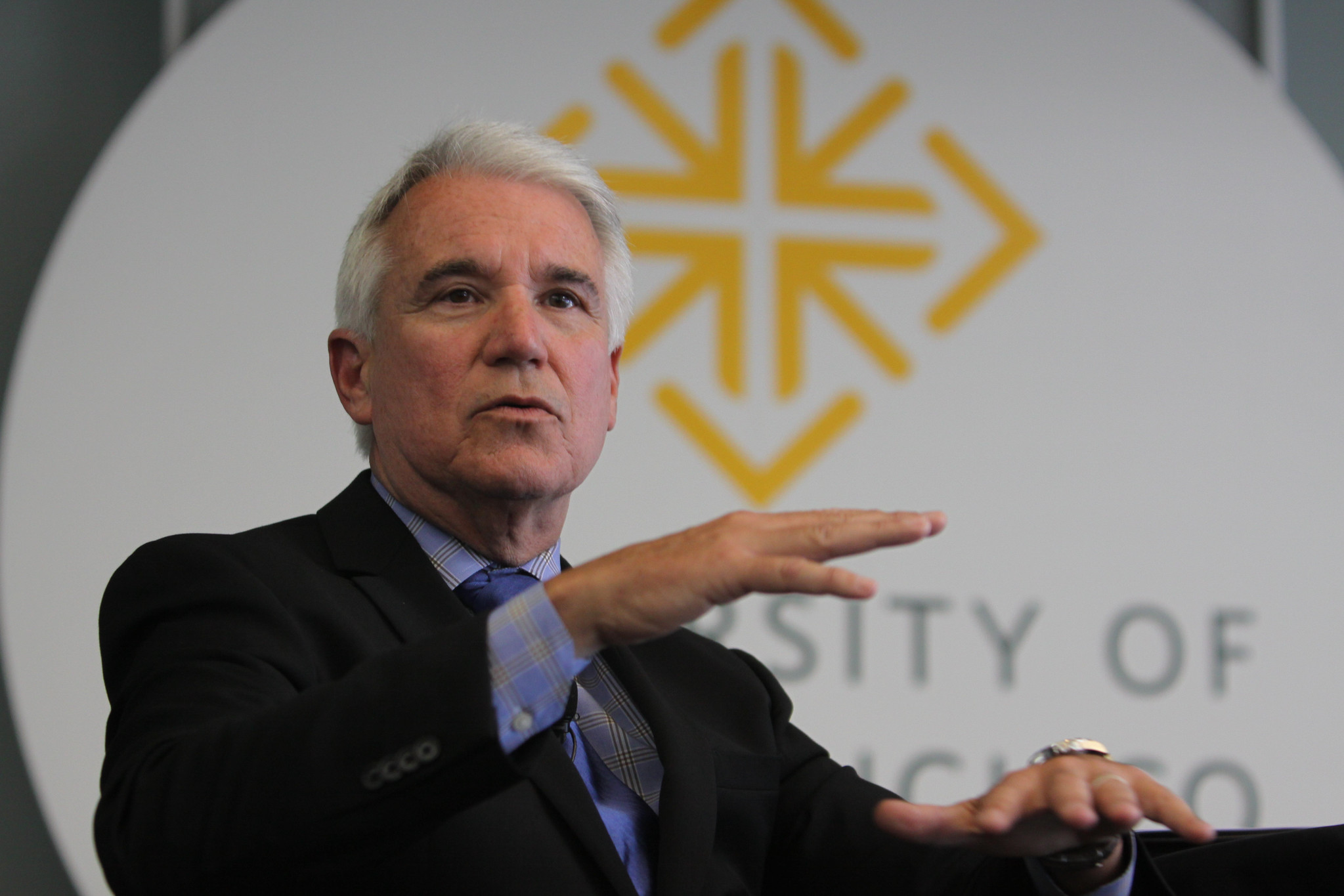A battle for the best reputation may not be the only duel Los Angeles and San Francisco have in the comings months. As San Francisco District Attorney George Gascon resigns, he is exploring the possibility of running for Los Angeles County DA against incumbent Jackie Lacey. Regardless of election outcomes, Gascon’s run would spark significant dialogue regarding necessary legal reforms in Los Angeles – a city that is in many ways the state’s last hold out for reform.
Los Angeles currently imprisons four times as many people as San Francisco and has a significantly higher incarceration rate than the state. People of color are incarcerated at a rate four times higher than white people are in LA. Over the last five years, the D.A.’s office has sentenced more people to the death penalty than Louisiana, Mississippi, Tennessee, Virginia, and Georgia have sentenced in sum. The only people that have received the death penalty under the current DA’s office have been people of color. This is inspite of the fact that LA voters opted twice to eradicate the death penalty. Gascon has the power to change these statistics, or at least to start the dialogue necessary to do so by running for Los Angeles County DA.
Despite its liberal reputation, California once led the nation’s ‘tough on crime’ prison boom. As the U.S. prison population skyrocketed from 200,000 in the 1970s to currently over 2 million people, California’s 263% prison population increase surpassed the growing rate of every single other state.
District Attorneys were central to growing incarceration rates. Activist and professor Angela Davis has written extensively about how prosecutors are the most powerful individuals within the legal system; their discretion ultimately dictates who is charged with a crime. Professor John Pfaff argues that between the 1990s – 2007, as crime dropped, the amount of prosecutors catapulted which gave them more power to dictate each case and led them to increase charges. Prosecutors leverage the threat of steep charges to push guilty pleas. A prosecutor’s choices of charge can more than double a potential sentence. The sheer power prosecutors have demonstrates how District Attorneys can greatly affect a county for decades.
Gascon has been on the forefront of efforts to reform and reduce incarceration. He was appointed as San Francisco DA in 2011 by then Mayor Gavin Newsom and subsequently was elected. While Gascon replaced democratic Presidential candidate, Kamala Harris, his leadership marked a sharp departure from many of her punitive policies.
His accomplishments highlight his commitment to making the system more equitable and less biased. He initiated the national dialogue to eliminate cash bail and created more objective standards to judge someone’s risk in determining bail. Gascon spearheaded the removal of racial references in San Francisco Police Department cases in order to reduce implicit bias. Since marjiuana legalization passed statewide, he worked to expunge over 9,000 marijuana convictions.
Meanwhile the legacy of punitive but unjust law enforcement remains present in Los Angeles. DA Lacey continues to apply the law unjustly to benefit people in positions while leaving the most vulnerable at the whim of the system. Lacey opposed bail reform yet shielded police officers from investigation, even when the city’s Police Chief publicly called for charges to be pressed. Most recently, her office declined to prosecute a wealthy white donor, Ed Buck, despite his involvement in the deaths of multiple gay black men. Because Gascon was able to transform San Francisco and shake much of the city’s legacy of punitive policies, he could likely do the same in Los Angeles or at least begin the conversation.
Gascon can become part of the nationwide movement of reformer prosecutors challenging incumbents – where it is most needed, in Los Angeles. From Philadelphia to Boston, challengers have run to reduce usage of bail and decriminalize drugs, and they have won. Their victories led to significant shake ups. Larry Krasner dismissed 31 prosecutors within his first week after winning a seven-way race in Philadelphia. Similarly, Rachael Rollins won a four way race after running to reduce bail and enact other reforms; she summed her position by saying, “I believe that we can hold people accountable without having to send them to jail.” This encapsulates the views of reform-oriented DAs running with justice centered platforms.
Gascon’s race would largely fit the mold of reformer prosecutors – but it is particularly significant given California’s punitive history. Given the strides the state has made, Los Angeles is considered the last hold out in terms of punitive law enforcement – its legal system is enormous and riddled with racial disparities. Lacey has neglected her duty to hold police officers accountable, and rectify racial injustice within the system. Gascon should run if for no more reason than to hold Los Angeles’s DA’s office accountable and begin an important dialogue about how Los Angeles can catch up with the state’s reforms.
Photo: “George Gascon Talk USF” Image via Shawn (Flickr)
